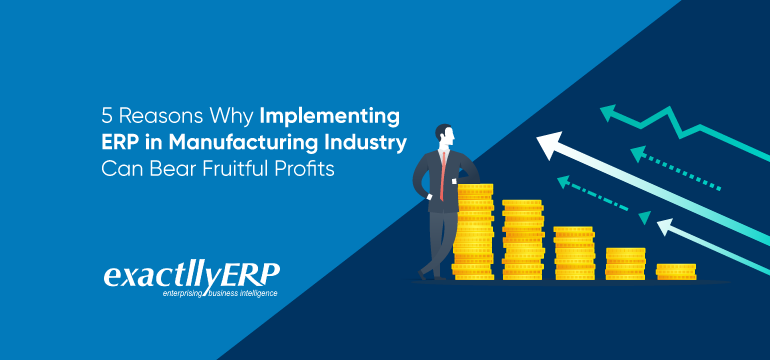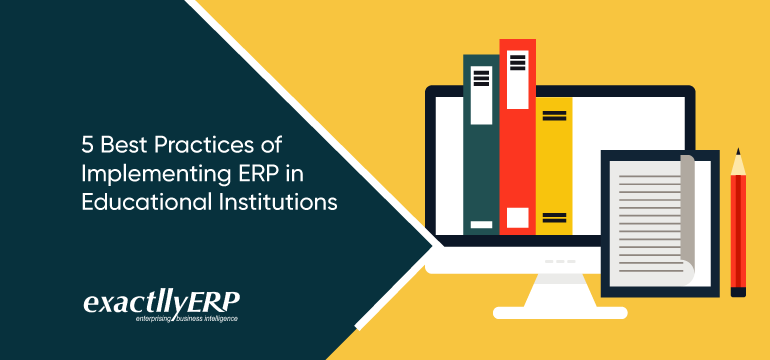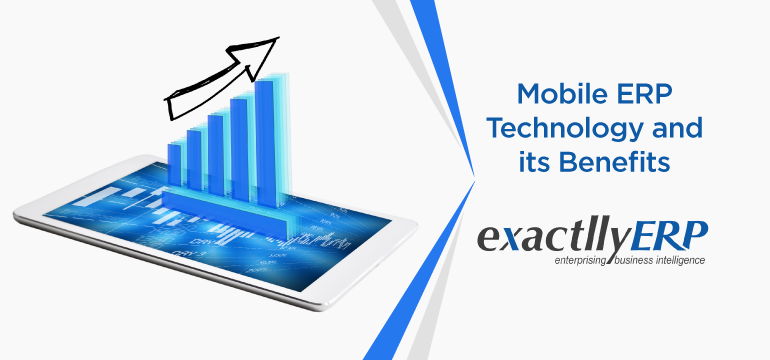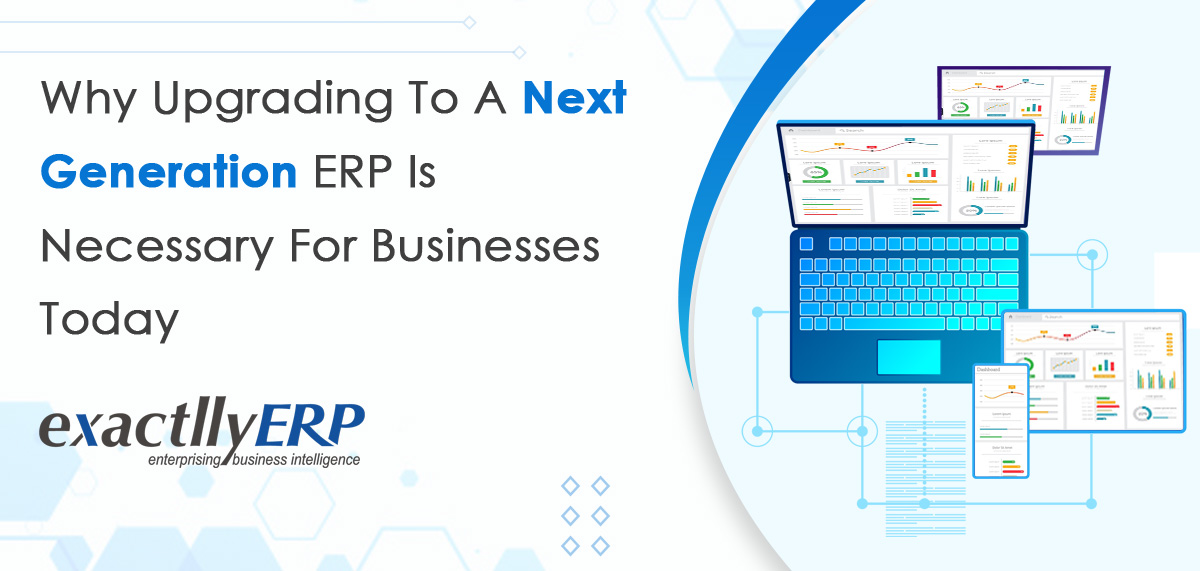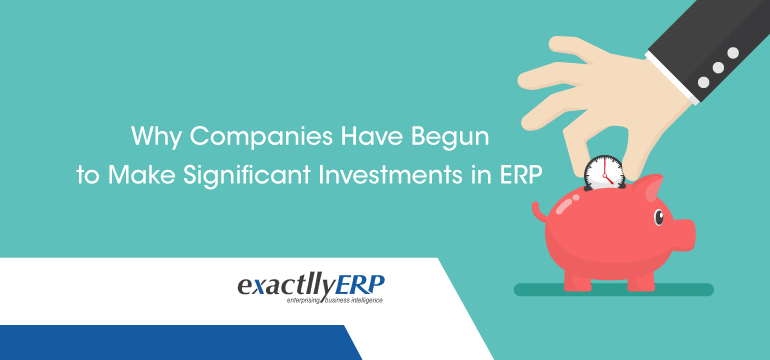Measuring the Potency of Cloud ERP Implementation Methodology
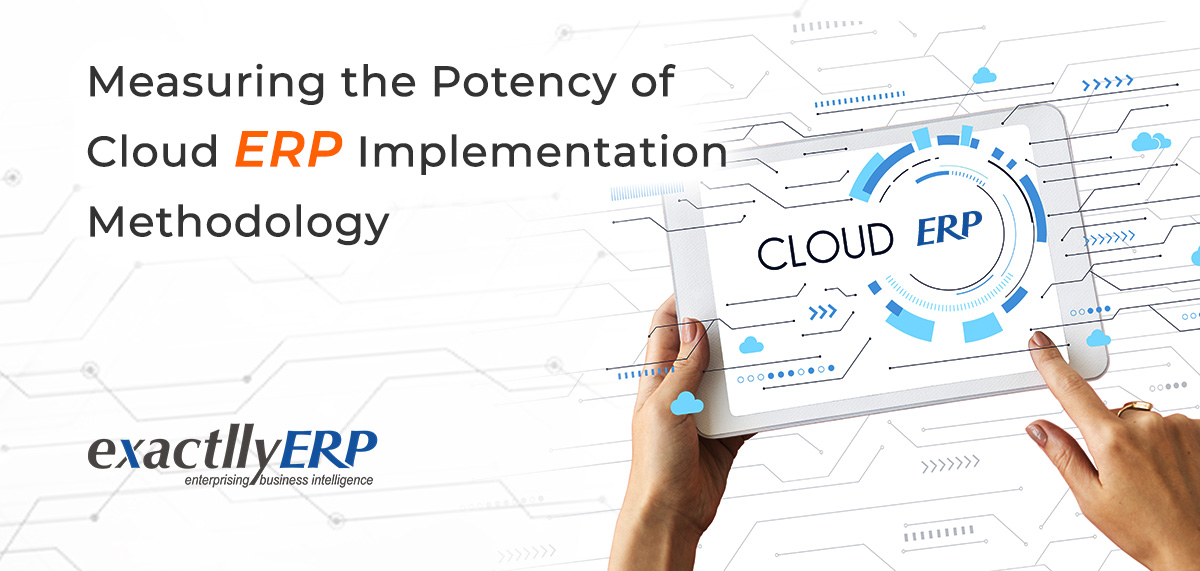
Businesses can easily cope with the competition around cloud ERP implementation as they can reveal new efficiencies and facilitate the collection of real-time data insights. The best cloud ERP software and help organizations in obtaining all the benefits. This also calls for employing the correct ERP implementation methodology. The cloud ERP implementation methodology can be complex or simple depending on organization size, the complexity of the project, etc. Cloud ERP software vendors manage the total infrastructure, thereby enabling businesses to emphasize employee training, data migration and process changes. Alongside, cloud ERP solutions vendors also manage everything starting from servers, maintenance and hosting. Cloud ERP implementation is convenient as companies can access the platform by simply logging in. Cloud ERP for small businesses is extremely valuable in today’s time.
Prospering with Cloud ERP Implementation:
When a business decides on a particular ERP implementation strategy, it is paving ways to emphasize numerous ERP implementation stages like organizational change management, business process reengineering and data migration. The best cloud ERP software from ERP partner, Exactlly is any day faster when compared to on-premise implementations. However, the universal implementation aspects will still apply as there lie zero implementation shortcuts. Here we have outlined a few essential elements of cloud ERP implementation irrespective of the deployment model. ERP implementation methodology becomes effective with these crucial components as mentioned below:
- Aligning the Executive Team – Before engaging in ERP business collaboration and selecting the cloud ERP software, companies must clearly define the project goals. Seeking input from the stakeholders like department leads and executives is imperative while describing the objectives.
While the company and the stakeholders work on ERP projects along with the best ERP software in Kolkata, they emphasize benefits realization management. This incorporates describing anticipated business benefits like sales orders and building a plan to reach the goal. Alongside it will even mean defining KPIs or key performance indicators to calculate the progress.
- Setting up an ERP Project Team – If we look at successful cloud ERP implementations, we will find an expert
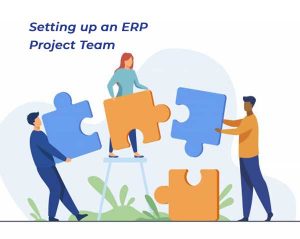 cloud ERP software project manager. Organizations dealing with ERP in the construction industry and ERP in the retail industry will also need to set a project team. When using cloud ERP for small businesses, the presence of an ERP Project team is imperative that incorporates employees, subject matter experts, executives, each with clear responsibilities and roles.
cloud ERP software project manager. Organizations dealing with ERP in the construction industry and ERP in the retail industry will also need to set a project team. When using cloud ERP for small businesses, the presence of an ERP Project team is imperative that incorporates employees, subject matter experts, executives, each with clear responsibilities and roles.
The team members will Start working on numerous portions of the project and their ongoing responsibilities and roles. Every duty is mission-critical, which will demand their competence and support. Companies will also need to develop a plan to shed off some workload from the team members. As far as employee training is concerned, companies don’t need to worry as cloud-based ERP vendors share that responsibility.
- Focusing on Change Management – Most of the time, organizations implement organizational Change management strategies
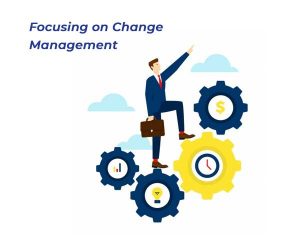 at the end of the project. They do this mainly because When a project ends, user adoption rates are low while there is high pushback. However, companies can avoid such situations by prioritizing Change management from the beginning. There is a need to generate a Change management plan at the pre-implementation stage that speaks of how employees will be shifted to the cloud ERP solution. The program must also describe how the company will communicate the modifications and handle the unavoidable change resistance. When the emphasis is on developing change competency into the business, it will probably experience let’s drops in efficiency and productivity with the going life of the new system.
at the end of the project. They do this mainly because When a project ends, user adoption rates are low while there is high pushback. However, companies can avoid such situations by prioritizing Change management from the beginning. There is a need to generate a Change management plan at the pre-implementation stage that speaks of how employees will be shifted to the cloud ERP solution. The program must also describe how the company will communicate the modifications and handle the unavoidable change resistance. When the emphasis is on developing change competency into the business, it will probably experience let’s drops in efficiency and productivity with the going life of the new system.
- Developing a Training Plan – There is a requirement for an intense training plan for Change management. Only educated and informed employees can understand and welcome cloud ERP implementation. This becomes even more crucial when employees are accustomed to using on-premise systems. With the development of the training plan, companies must guarantee that it emphasizes business processes and not system transactions. Employees with this will be able to comprehend the bigger picture.
- Building a Data Migration tactic – When it comes to cloud ERP implementation methodology, it can become effective with a step-by-step enterprise resource planning data migration tactic. This is vital when an organization shifts the data from the on-premise and legacy systems to the cloud-based ERP system. This is a process that must start from the planning phase of ERP implementation within an organization.
As a portion of the data migration tactic, organizations must contemplate the data that requires cleansing. Data cleansing guarantees that data does not contain duplications and inaccuracies before it gets moved. Despite all the efforts, it might be challenging to catch it all at the time of data cleansing. Due to this reason, several companies conduct a mock data migration to obtain a clear view of the working of the natural process and the issues that organizations might encounter.
- Testing is Vital – Be it any cloud ERP implementation, system testing is the most critical part. This is more crucial when an organization is Hosting environments, modifying deployment models for migrating the data to the cloud. Guaranteeing the precise definition of every test case is imperative before beginning the ERP system testing. This is in context to anticipated outcomes and inputs. Organizations can essentially avert scope creep at the time of the actual testing by implementing this step.
Final Say:
When cloud ERP implementation is performed correctly, cloud ERP solutions like cloud ERP software can help organizations operate more efficiently. The effectiveness of ERP implementation methodology also largely depends on this. The aforementioned cloud ERP implementation methodology tips must be kept in mind to guarantee the success of any ERP implementation. The best cloud ERP software like exactllyERP can help organizations in preventing ERP failure. A cloud ERP for small businesses is vital for every organization in the present era. With the best cloud ERP implementation, companies can scale effortlessly. The best cloud ERP software also includes less complex implementations that are ultimately beneficial for any organization. Learn more about the best ERP software from the Free Demo today. Contact Us for the quotes.
FAQ:
(1) What are the various methodologies for the Implementation of ERP?Organizations govern the ERP systems with two primary methodologies like agile methodology and waterfall methodology. Selecting the right methodology is crucial. (2) What is ERP Implementation methodology?ERP implementation methodology incorporates similar phases to obtain from buying the solution to deploying software or licenses, transferring transactional and financial data for every department. (3) How is cloud ERP Implemented?The ERP vendor centrally manages the cloud ERP systems. The workforce within an organization can simply log in to access the platform. (4) How do you plan an ERP Implementation?Planning an ERP implementation includes bringing together the ERP project team, developing a change management plan, predicting the ERP implementation expenditure, data migration, etc. (5) What is a Successful ERP Implementation?An ERP implementation that is completed by staying within the budget and on time and delivering the anticipated functionality is the successful one. (6) Which is one of the most critical steps in ERP Implementation?Integration, data migration process, ERP employee training, testing and going live are the critical steps in ERP implementation. (7) What is necessary for the ERP Implementation to be successful?An ERP implementation can be successful with a clearly defined project scope and robust project management. Customization needs to be avoided. (8) What is the ERP life cycle?ERP life cycle is the process of the implementation for automating business processes and this includes a total of ten to twenty years of efficient operating life. (9) What is the ERP Implementation life cycle?An ERP implementation life cycle is the 8 step process of deploying ERP software and this includes the planning phase till going live & beyond. (10) What are the benefits of implementing an ERP system?The benefits of implementing an ERP system are cost savings, enhanced inventory costs, supply chain management, better business reporting, etc. (11) How can ERP challenges be overcome?ERP challenges can be combated by guaranteeing proper training, active user participation and thorough understanding. (12) How do you compare two ERP Systems?Comparing two ERP systems is possible by considering factors like people who are behind the software, software tier, company history, deployment method, price, etc. |

